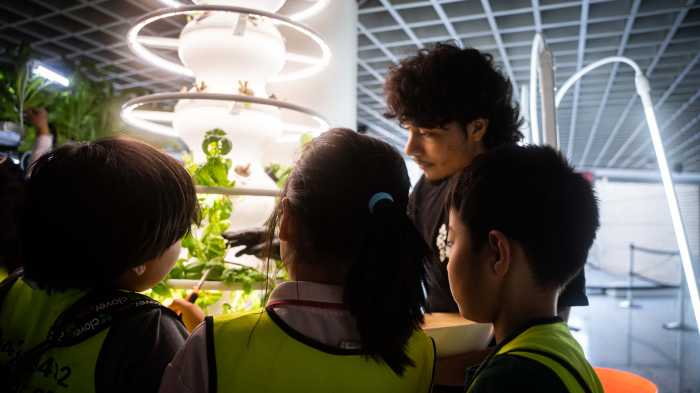By Jane Flanagan
Often I am overcome with the sense that the world my son is growing up in is, in many ways, worse off than the one I grew up in. When I was a child going to school, my mother did not worry about terrorist bombs.
Still, I am extraordinarily lucky. That’s because when I drop six-year-old Rusty off at school, I know that particular world is so much better.
Recently I attended his “Back-to-School” night and began wishing that I could attend first grade over. Sitting in the classroom, I listened as his teacher, Ann Prescott, explained why she liked teaching 6-year-olds and how she went about it.
Early on in her career she taught 8th grade. But it wasn’t for her.
“By then, habits are ingrained,” she said. “I wanted to try and shape those habits.”
“Wow,” I thought. “Not just teaching, ‘shaping.’” I leaned in to hear more.
Prescott went on to discuss being happy. It’s a priority with her.
“If the children are not happy here, if they don’t want to come to school, very little learning will take place,” she said.
That’s a radical idea where I hail from. When I was in first grade no one thought about whether I was happy or not. I was one of 50 kids in a class with a teacher I could hardly see. She was a nun whose habit exposed only two parts of her body: her face (from the eyebrows down) and her hands. Everything else was concealed. I was six-years-old, frightened to be in a new school and couldn’t get past the teacher’s garb. It would have taken a radiant personality to exude warmth through that outfit and she didn’t have it.
But then, with 50 pupils and no help, who has time for warmth? Her focus was control. To that end, talking was forbidden, even during lunch.
First grade was the beginning of years of silence. Quiet children were praised, and so I became a quiet child. I got good grades, was well-behaved and, therefore, considered a model student. But I can’t say I learned much.
So when Prescott started talking about shaping habits and being happy, I sat up. That Back-to-School night was held on a weeknight and at such meetings, after a long day, I usually start checking my watch. But not that night. I didn’t want to leave.
At Prescott’s place, a premium is set on freedom to fail. During the early weeks children are learning not to laugh or ridicule others for mistakes. On the other hand, she is leery of too much lavish praise. To that end, she does not send papers home. Children need to feel good about their work themselves and depend less on glowing compliments.
“They are certainly not going to get that in life,” she said.
It’s something I’d never thought about, but I instantly knew she was right.
Reprimands in my son’s class come in the form of “stop and think.” The idea is to minimize the punitive and maximize the positive, i.e.. get kids to figure things out for themselves. Further humanizing things, Prescott tells them that when she was in first grade, she, too, had to go to “stop and think.”
Enabling children to own their foibles is another one of her policies. One day my son came home from school and said that Ms. Prescott was playing kickball. “But she misses sometimes,” he said, smiling.
Throughout all this, discipline is maintained. A friend told me about a playground incident when a child called her son “a baby.” Her son started to cry. Ms. Prescott intervened. Getting down on her customary one knee, eye-level with the offender, she explained in a respectful tone that name calling was simply not accepted at the school. It never happened again.
I wish I could find a way to spread Ms. Prescottism around the city, the country and the world. There would be far fewer terrorists.
WWW Downtown Express

































